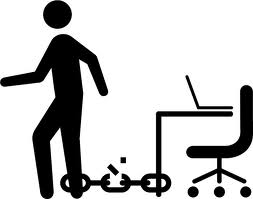Why the Rich Get Richer 2
Does universal health care help entrepreneurship?
-
Tools:
What does the American Dream look like? Sometimes it's just a white house with a picket fence, but most Americans figure that truly achieving The Dream requires ownership of your own business. That's perhaps why multi-level marketing schemes are so popular, despite even the honest ones rarely providing great wealth to anyone save the founders.
In the first article in this series, we began with a simple question: why do the rich get richer, and everyone else so much less so? A straightforward explanation is that "it takes money to make money" - several hundred thousand dollars in investment capital or borrowing are required to start almost any sort of business with actual employees. If you've already got that kind of money to drop on a venture, by definition you're at least a little bit rich.
But direct investment capital is not the only requirement to start a small business. It's extremely rare for any new business to be immediately profitable on day one; most businesses run at a loss for months or years while they establish themselves.
Yet even the most dedicated entrepreneur must eat and live somewhere, more so if he has a family. Living expenses have to come from somewhere - if not from a still-money-losing business, then they have to be counted as part of startup capital. Many small businesses have failed because their owner simply ran out of money to keep them going; perhaps if he'd had more capital in the first place, he could have carried through to ultimate success.
 |
| Easier said than done. |
The Handcuffs of Job Lock
For our friends on the left, there is an immediate and obvious solution to at least part of the problem: enact national healthcare! As Washington Monthly argues:
Universal health insurance, far from suppressing entrepreneurship, could be a boon to it. The main reason for this is a phenomenon known as "job lock," a term coined during the last round of debate over universal health coverage in the early 1990s. Job lock refers to the fact that workers are often unwilling to leave a current job that provides health insurance for another position that might not, even if they would be more productive in that other position. This is because employer-provided insurance is traditionally the only reliable form of fairly priced private insurance coverage available in the U.S. The alternative is to purchase insurance in the nongroup market, where insurance prices and availability are typically not regulated, so insurance companies can drop individuals when they become ill or charge them exorbitant prices. As a result, individuals feel "locked" into less productive jobs.
Is "job lock" a real problem? Absolutely, and it gets to be more of a problem the older you get and the less healthy. If you've had a costly previous condition, no private insurer will grant you coverage; small businesses, whose premiums are based on the health of all their employees, will also be deeply reluctant. A giant firm with thousands of employees doesn't really care, because one individual unhealthy employee has a negligible effect on the total bill.
So we see an immediate conflict. To even be in a position to reasonably start a business, you need capital of several hundred thousand dollars. Middle-class families can indeed accumulate this kind of money, but only by middle age.
Unfortunately, about that time their bodies start breaking down and insurance becomes a problem. Properly managed diabetes won't kill you but it certainly can make it impossible to find health insurance outside of a traditional employer, and uninsured diabetes quickly becomes unmanaged diabetes which really does kill. Far better to stay in your safe cubicle job and leave the money in the stock market instead of striking out on your own.
If you have a national healthcare system like England and Canada, this problem vanishes: employed or unemployed, rich or poor, all Canadians or Brits can visit the doctor without worrying about either payment or insurance, always assuming they can find a doctor and don't die while waiting. The logic seems compelling, and a number of studies claim that solving the health insurance problem would increase entrepreneurship by as much as 2%.
The Limits to Logic
It sounds plausible, reasonable even. We all know people who've struggled with health insurance or medical bills; we can all point to unfortunate souls who would have been bankrupted without big-company health insurance plans, or who are unable to afford insurance and just cross their fingers and hope for the best. How can you handle the stresses of founding a small business if you're also worrying that your next illness might present the choice between death and bankruptcy?
Follow the logic one step further, though, and a contradiction appears. As the Left loves to remind us, America is the only major developed country without a national healthcare system.
Therefore, the entire rest of the developed world - Japan, England, Europe, Canada, Australia, Scandinavia, and so on - must just be bursting with successful small businesses and entrepreneurs raking in the wealth, freed from worry over their own health!
Is that what we find? No - in fact, the exact opposite is true. America, for all its health-care problems and current economic difficulties, is and has always been the world's entrepreneurial hotspot.
Why might this be? In the last article in this series, we'll consider this highly pertinent and revealing question.
-
Tools:
What does Chinese history have to teach America that Joe Biden doesn't know?


They are right about one thing: we desperately need to decouple health insurance from employment. Kill the deduction, etc.